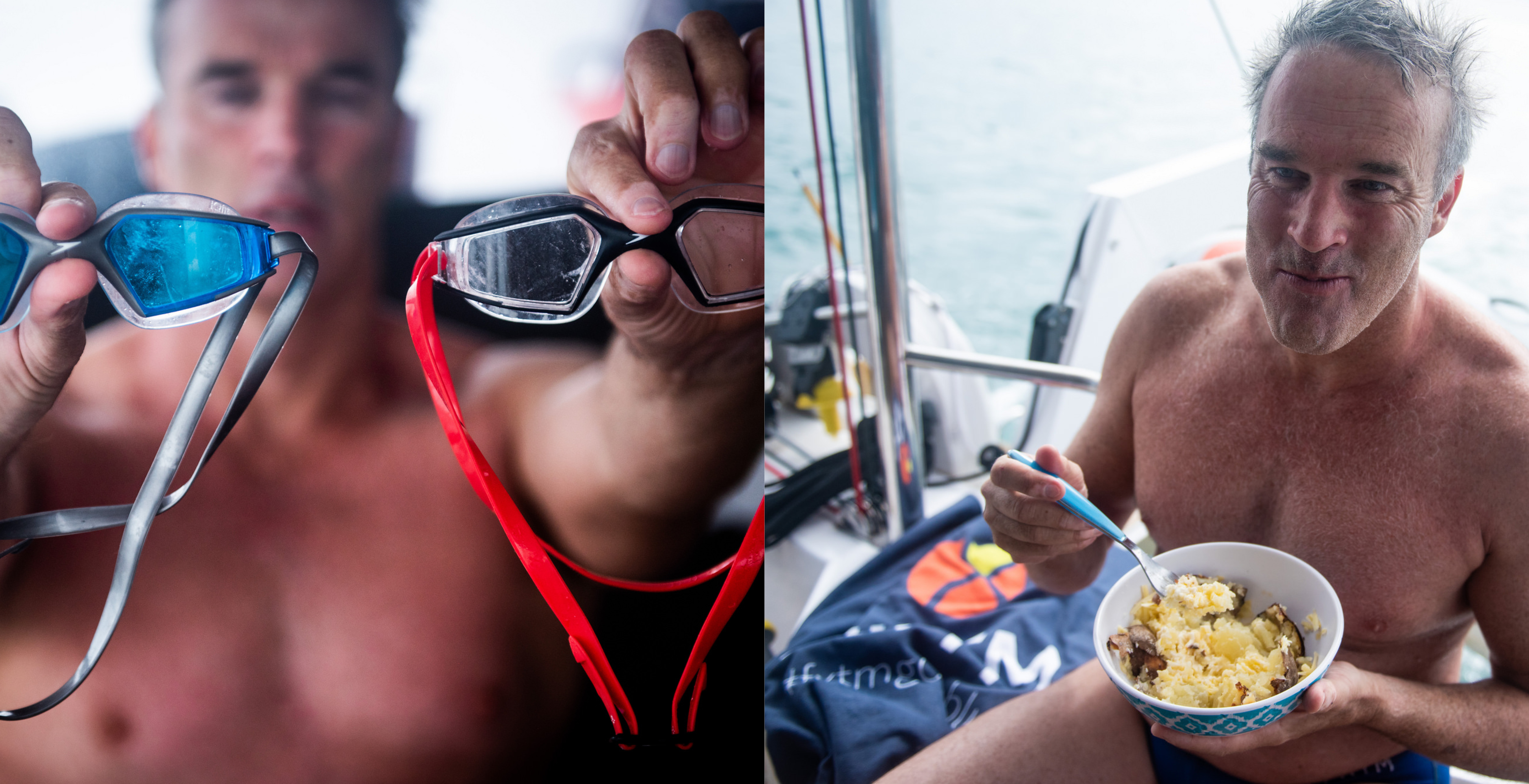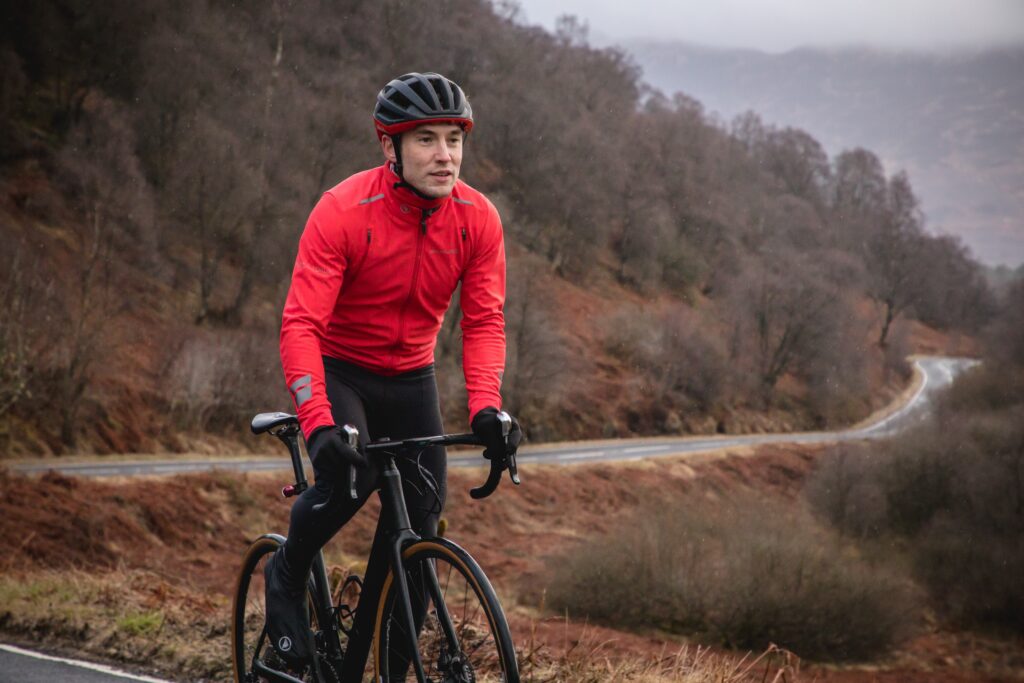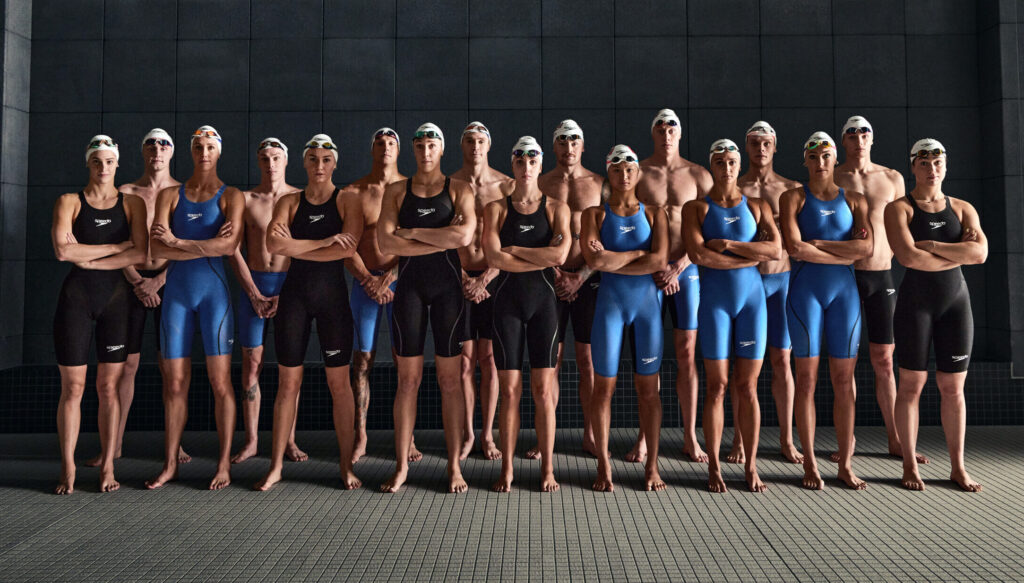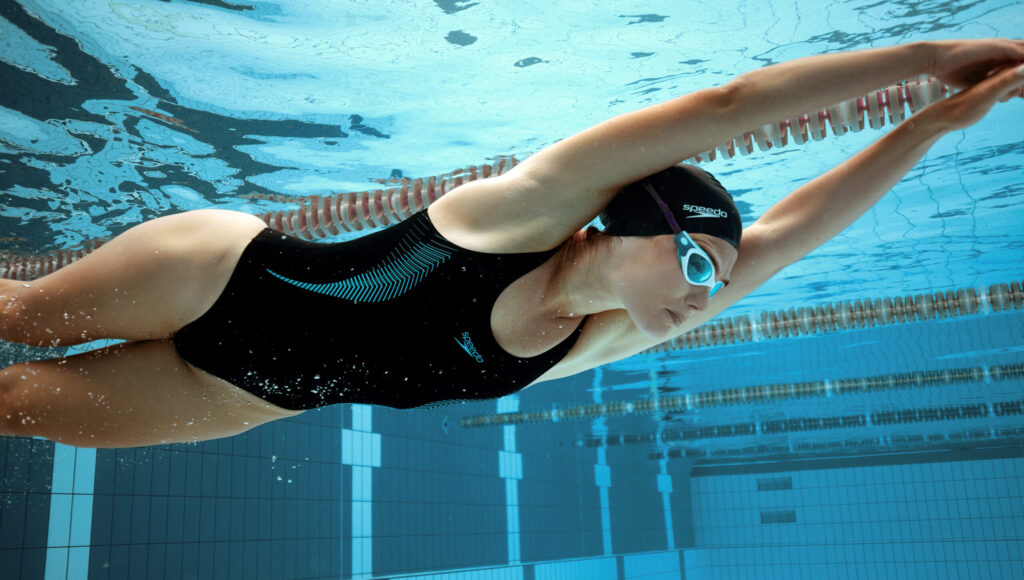Lewis Pugh, the UN Patron of the Oceans and renowned endurance swimmer, is nearing the finish line at Dover having swum nearly an astonishing 560km across the English Channel.
This swim is a part of the worldwide Action for Oceans campaign and calls on the government to fully protect at least 30% of the world’s oceans by 2030.
As a Patron of the Oceans and ambassador for Speedo International we wanted to find out what’s been going on behind the scenes, both in the water, and back on the boat.
You mentioned in your blog you’re struggling to keep up with your calorie intake, what does a typical day of eating look like?
“I can burn up to 6,000 calories a day on The Long Swim, burning roughly 15 calories for every minute I’m in the water. I have found it difficult to replace the energy that I’m burning and have noticed that I am losing weight. I predicted that this would be an issue, though, so intentionally bulked up for the start of the swim, beginning at 100kg. I estimate that I’ll be around 85kg by the time I get to Dover.
I’ve found that my diet has changed as the swim has gone on. At the start, I was constantly craving foods high in sugar, especially chocolate and ice cream. By day 36, however, my tastes have totally changed. Now, when I get out the water, all I want is a salty, buttery, cheesy jacket potato – something that chef Denise cooks especially well!”
What are you thinking about when you’re in the water? What helps you push through the tiredness?
“At the start of The Long Swim, when we were alongside the Cornish coast, I was happy to be lost in the spectacular scenery. It was a great distraction during the hours of swimming. Swimming across vast expanses of water like Lyme Bay is much more of a mental challenge. The monotony of it, day after day, week after week, can really wear you down.
When I’m having one of those weak moments, I think about the reasons I am doing this swim. It comes back to the why of this campaign. Why have I decided to swim from Land’s End to Dover? It’s about protecting the waters I’m swimming through, not just to keep them as they are, but to ensure that they can recover and thrive and be an even better home for the wild creatures who belong here.
Every time I pick up a piece of plastic when I’m swimming, or when I realise that I haven’t seen any wildlife in days, I remember that this is worth it. Knowing that I am doing it for the dolphins, the puffins and sunfish is a powerful motivator.
Some days are just really tough and to be honest it is hard to get in the water. On those days I count strokes to try and pass the time as quickly as I can and to avoiding spiralling down a mental black hole. I count 1 – 1, 2 – 1, 2, 3 – 1, 2, 3, 4 – all the way up to 50 and then back down again. It helps to pass the time.
Of course there are random thoughts that go through my head while I’m swimming. Sometimes I’ll think of something that has relevance to the campaign message, and I’ll pause and shout it out to the boat so one of my crew members can write it down, so I don’t forget it. They’ve even started a ‘Lewis’s stream of consciousness’ notebook!
The bottom line, though, is that I know my team will keep me going until I’ve covered enough distance for the day. They are always finding new ways to encourage me when I take a breath facing the boat – my favourite was the sign they put out to tell me the moment I crossed the half-way point.”
Have you had any big surprises along the journey so far?
“The biggest surprise, or rather the biggest shock, has been how little wildlife we’ve seen.
I was expecting to see vast shoals of fish, flocks of birds and regular pods of dolphins from across plenty of different species. The marine biologists I spoke to at the start of the swim said I could expect to see turtles and whales too.
Granted, I have seen plenty of jellyfish, but these blooms are not naturally occurring and are as a direct consequence of warmer waters from the effects of climate change.
Wildlife is usually one of the sheer joys of open water swimming and is certainly one of the perks of the job, but not here. Overfishing and pollution has decimated the ecosystem.”
So far you’ve managed a maximum of 9.9 miles in a day, do you think you have a chance of improving that distance before the end of August?
Sadly not. We are now past the fastest sections of current so I won’t have as much of an added lift anymore!
I am also getting increasingly tired and am now contending with a shoulder injury that is hampering my earlier speeds.
What are you most looking forward to when you get out of the water on the final day? A hot bath?
That’s a good start! Mostly though, I am missing my wife and my Jack Russell, Nanu
The end of the swim is where the hard work really starts. That will be my opportunity to move the message of clean and protected oceans from the English Channel onto the political agenda, both locally and internationally.
We need 30% of our waters protected by 2030. I intend to shout that message from the rooftops until we start seeing some real legislative change.”
You can keep up to date with the progress Lewis is making, and find out more about the cause and how to get involved on his blog on twitter and on the Sky Ocean Rescue website.





